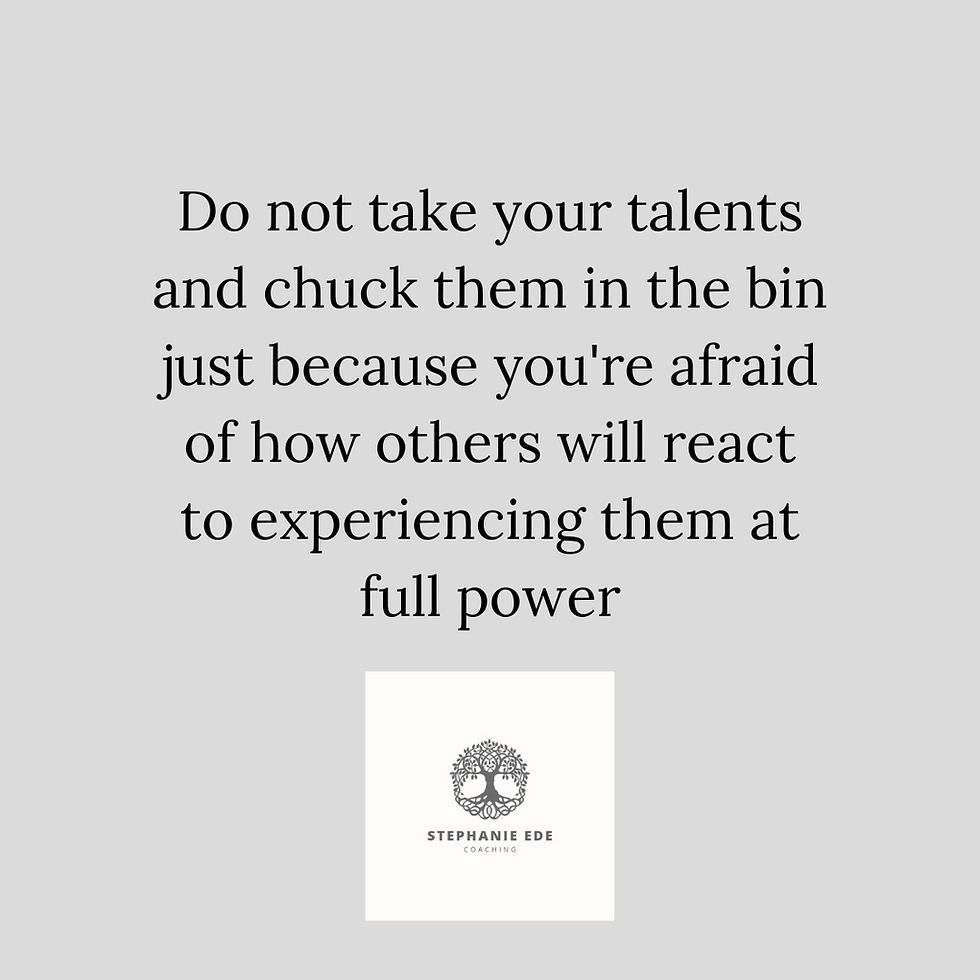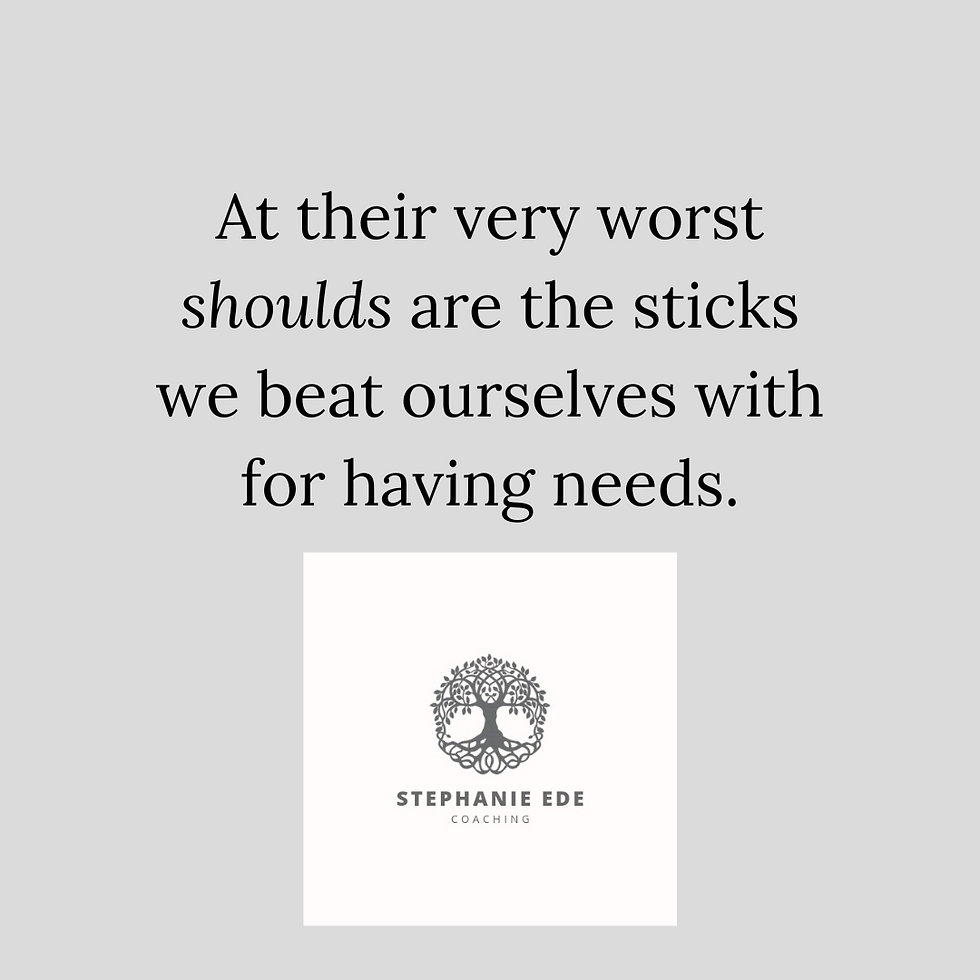Performance Anxiety: reframing our attitude to performance
- stephedecoaching
- Mar 28, 2023
- 4 min read

Performance, in whatever sphere, be it artistic, sporting or business, is by definition challenging. When we ‘perform’ we are asking ourselves to create magic, excel, and go beyond our usual state in order to achieve something ‘special’. This is admirable on one hand, but creates an environment of pressure around the outcome.
Why an environment of pressure? There are two main factors at play here. The first is external as we are putting ourselves in front of others and therefore potentially inviting in scrutiny, criticism and judgement. We are also potentially inviting in praise, but in truth we are less likely to factor that in as a result, and if we do, tend to disregard it as less worth listening to than negative reaction. So our focus is on potential negative reaction and we therefore skew our thinking towards attempting to avoid that negative reaction, which is an inherently negative and limiting state which fosters an anxious mind set.
The second factor in creating pressure around our performance is, of course, internal. It involves the stories we tell ourselves about who we are, what we do and how we do it, and how successful (or otherwise) we think we ‘should’ or ‘can’ or ‘could’ be. This internal factor is incredibly powerful because it is controlled by us, much of the script is running subconsciously in our heads so we are not even aware of it, and these stories have been formed by decades of information we have collected and shaped from our own unique experience. And unless we share these stories with others (assuming we are even aware of them) they remain, unchallenged, within our control to bend to whatever self-limiting belief we wish to torment ourselves with in any given moment.
Combatting both our internal narrative and our fear of external disapproval is difficult stuff and takes time, patience and understanding, and I will talk in more detail about both of these and how we might navigate them in future blogs, but for now I want to introduce a possibility into the mix.
What if we were to reframe our ideas around performance and give equal status to both the performance and the process leading up to it? Or ideally, create a space where the performance simply becomes the natural extension of the learning, information-gathering, refining process?
What do I mean by that? Surely we already do that?
Well, no. Many of us don’t.
We look at the process of preparing ourselves for a performance as ‘something to be done’, a chore to get us to ‘over there’ to the mystical bubble that we must penetrate in order to ‘perform’. In other words, we create an environment where process and performance are separate entities simply because the performance phase involves an intense environment of pressure which is not present during the process phase (or not until very late in it).
So can we, through recognising that the process begins at the moment we say ‘yes’ to the challenge and ends at the moment that the post-performance analysis is over, begin to lessen the burdensome pressure on the performance element and create a more curious, engaged and light-hearted environment in which to express ourselves?
Think of it this way. Without the process of learning, intellectual sorting, problem-solving, decision making, practice and refinement, our performance would be less-than. Diminished. We’d, frankly, just be taking a swing at it. Plucky, yes, but not an approach that usually ends well – trust me, I’ve tried it! Would having more respect for and paying more attention to the work we put into the process give us the space and freedom to let go of the performance outcome? And therefore reduce, at least to an extent, the pressure we place around it?
We are seldom in control of the circumstances or the environment in which the performance is given. We are often just a part of something else –be it a concert, a client meeting, an athletics meet, a football match. Our performance can go well or it can go badly or it can just go okay. And much of the time circumstance, not us, will dictate which it will be. A church hall might be freezing cold and we can’t feel our fingers on the instrument. It may have been raining for a week so the pitch is saturated and like a mudbath. The IT might not work so all our lovely, carefully-designed slides can’t be viewed and we have to give our presentation verbally. We might have caught a cold. Disaster? No. Just life. A moment in time where we have to show agility and adaptability. We have no choice but to deal with ‘what is’ in the absence of our ideal performance environment, so we do our best within the circumstances we find ourselves in.
Frustrating, yes. Disappointing, yes. But a disappointing performance outcome does not erase your newly acquired knowledge, the intellectual rigour and refinement you have applied, the technical breakthroughs you have made during the process in order to produce the performance. The growth does not lie in the performance, it lies in the learning, improvement and curiosity that went into preparing for it.
So, in letting go of the performance outcome, we can give ourselves permission to recognise, celebrate and enjoy the gift of the process. That is where the true treasure lies.



Comments